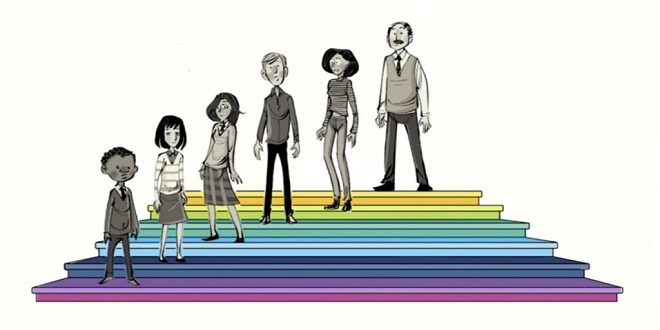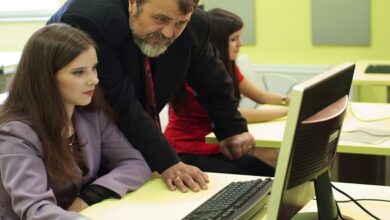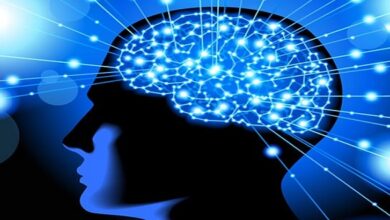The self, social, and moral development

Physical and Motor Development
For most children, at least in the early years, growing up means getting bigger and stronger, and becoming more coordinated. It also can be a frightening, disappointing, exciting, and puzzling time.
Preschool children are very active. Their gross-motor (large muscle) skills improve greatly during these early years. Between ages 2 and about 4 or 5, preschoolers’ muscles grow stronger, their brains develop to better integrate information about movements, their balance improves, and their center of gravity moves lower, so they are able to run, jump, climb, and hop. By age 2, most children stop “coddling.” Their awkward, wide-legged gait becomes smooth and rhythmic; they have perfected walking. During their third year, most children learn to run, throw and jump, but these activities are not well controlled until age 4 or 5. Most of these movements develop naturally if the child has normal physical abilities and the opportunity to play. Children with physical problems, however, may need special training to develop these skills.
Play, Recess, and Physical Activity
Maria Montessori once noted, “Play is children’s work,” and Piaget and Vygotsky would agree. The American Academy of Pediatrics stated, “Play is essential to development because it contributes to the cognitive, physical, social, and emotional well-being of children and youth”. The brain develops with stimulation, and play provides some of that stimulation at every age. In fact, some neuroscientists suggest that play might help in the important process of pruning brain synapses during childhood. Other psychologists believe play allows children to experiment safely as they learn about their environment, try out new behaviors, solve problems, and adapt to new situations.
Babies in the sensorimotor stage learn by exploring, sucking, pounding, shaking, throwing—acting on their environments. Preoperational preschoolers love make-believe play and use pretending to form symbols, explore language, and interact with others. They are beginning to play simple games with predictable rules. Elementary-school-age children also like fantasy, but this fantasy play becomes more complex as children create characters and rules, for example, rules about how to bow to and obey the “Queen of everything.” They also are beginning to play more complex games and sports, and thus learn cooperation, fairness, negotiation, and winning and losing as well as developing more sophisticated language. As children grow into adolescents, play continues to be part of their physical and social development.
Challenges in Physical Development
Physical development is public. Everyone sees how tall, short, heavy, thin, muscular, or coordinated you are. As students move into adolescence, they feel “on stage,” as if everyone is evaluating them; and physical development is part of what is being evaluated. So physical development also has psychological consequences.
Bronfenbrenner: the social context for development
We put the developing person in context by exploring the work of Urie Bronfenbrenner (1917–2005), who was born in Moscow, Russia, but moved with his family to the United States when he was 6. Bronfenbrenner completed a double major in psychology and music at Cornell in 1938 and a PhD in psychology from the University of Michigan in 1942. Over his long career in psychology, he worked as a clinical psychologist in the U.S. Army and as a professor at the University of Michigan and at Cornell. He also helped to found the Head Start early childhood program. Visit Gramhir to find out more information
Summary
In schools, cheating is a common behavior problem that involves moral issues. The decision to cheat is based on three questions: What is my goal? Can I do this? What are the costs? Cheating is caused by both individual and situational factors, but if the pressure is great enough and the chance of getting caught is slim, many students will cheat.





